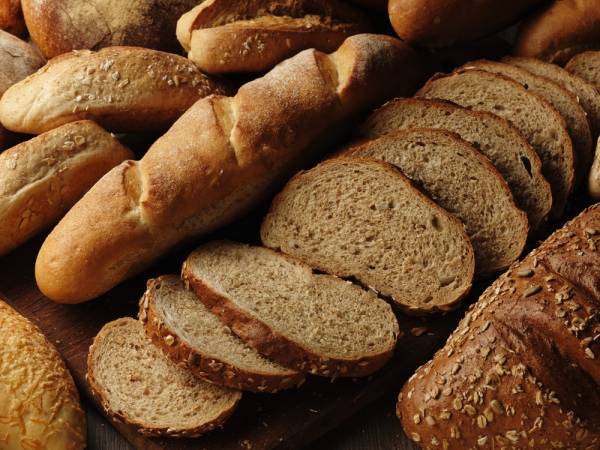We are all too familiar with the obesity and diabetes epidemics that plague our society. These are not the only epidemics we are facing. The United States spends about $215 billion annually on orthopedic surgeries, cancer is catching up to heart disease as the number one killer in the U.S., and we also suffer from chronically low moods and neurodegeneration as we age.
According to the Centers for Disease Control and Prevention, the prevalence of antidepressants is up 400% when compared to the last couple decades, and Alzheimer’s disease costs this country $100 billion annually. That is not a typo – 400% and $100 billion. Could it be that our current recommended dietary guidelines are a contributing factor to this epidemic? The answer is most definitely yes.
Disclaimer: I do not think that diet is the only underlying issue here. We are chronically overstressed, sleep deprived, vitamin D deficient, sedentary, and tend to spend a lot of time alone. Those are all contributing factors to the decreased mood seen in this country. However, for today we are going to focus on nutritional aspects that are major contributing factors.
LEARN MORE: Optimal Dosing and Sourcing of Supplemental Vitamin D

The Possibilities of Eating Low Carb
We are encouraged by the USDA to eat a diet high in carbohydrates and low in fat. A study performed in 2012 and published in the Journal of Neurobiology and Aging put 23 older adults on a six-week diet that was either low carb or high carb. Although depressive mood was unchanged, there were reductions in weight, fasting glucose, waist circumference, and fasting insulin, as well as improvements in the verbal memory test of the low-carbohydrate group.1
This study lasted only six weeks, yet showed increased cognitive ability for an older population with mild cognitive decline. What would happen if we ate like this all of the time?
The Value of Ketogenic Diets
Ketogenic diets have been used in the treatment of epilepsy for over eighty years. These are low-carb, low-protein, and high-fat diets that produce energy for cells in the form of ketones.
One ketone body in particular, B-hydroxybutyrate, protects neurons from degeneration as well as trauma. In a review written for the Journal of Behavioral Pharmacology the authors concluded by saying:
A wide variety of evidence suggests that the ketogenic diet could have beneficial disease-modifying effects in epilepsy and also in a broad range of neurological disorders characterized by death of neurons. Although the mechanism by which the diet confers neuroprotection is not fully understood, effects on cellular energetics are likely to play a key role. It has long been recognized that the ketogenic diet is associated with increased circulating levels of ketone bodies, which represent a more efficient fuel in the brain, and there may also be increased numbers of brain mitochondria. It is plausible that the enhanced energy production capacity resulting from these effects would confer neurons with greater ability to resist metabolic challenges. Additionally, biochemical changes induced by the diet – including the ketosis, high serum fat levels, and low serum glucose levels – could contribute to protection against neuronal death by apoptosis and necrosis through a multitude of additional mechanisms, including antioxidant and anti-inflammatory actions. Theoretically, the ketogenic diet might have greater efficacy in children than in adults, inasmuch as younger brains have greater capacity to transport and utilize ketone bodies as an energy source.2
LEARN MORE: Do We Need Carbs for Performance?
Carbs, Depression, and Cognitive Decline
Let us focus on the cellular energetics piece. The study that compared the low-carb and high-carb diets in the 23 older patients showed no signs for improved depressive symptoms, but the elderly tend to have higher rates of depression than the rest of the population. There are a number of reasons this could be.
Oxidative damage builds up over time and is associated with aging and all the diseases that accompany the aging process. The elderly will likely have increased oxidative damage, as well as the loss of loved ones. They tend to live in nursing homes alone, which will decrease oxytocin, which is a potent chemical that is protective of depressive disorders. Also, homebound elderly people are likely to suffer from vitamin D deficiency.3
THE SCIENCE BEHIND IT: Hugs Are Awesome (And Good For Your Health, Too)

Insulin resistance and type 2 diabetes have strong correlations with depressive disorders. In young adults, insulin resistance was correlated with higher depressive rates and a meta-analysis of 42 research studies found that people with type 2 diabetes were twice as likely to be depressed as people without diabetes.4
Type 2 diabetes is on the rise in both children and adults and is becoming a worldwide epidemic. We develop insulin resistance and later on type 2 diabetes from eating too many carbohydrates. According to the research presented in this paper, once we develop insulin resistance and type 2 diabetes, we are at greater risk for depressive mood and cognitive decline.
BEYOND DIET: 60 Minutes of Exercise Can Improve Insulin Resistance 25%
Low-carbohydrate diets have been shown to improve cognitive impairment, increase glucose sensitivity, decrease fasting insulin, and protect neurons from degeneration and trauma. To summarize, high-carb diets cause all those issues, and low-carb diets reverse symptoms of all those issues.
Perhaps this is an underlying mechanism of this epidemic? With that said, I am not anti-carbohydrate and have written the reasons why here. However, the recommendation for 45-65% of our calories coming from carbohydrates to a population where two-thirds of the people are overweight or obese is incorrect. Aim for 20-40% of your calories coming from carbohydrates in the form of tubers and fruits.
FURTHER READING: Is Starch Dangerous? Don’t Worry About Grain Brain
In future articles, we will dissect specific fats and how they positively and negatively affect brain health.
References:
1. Krikorian, R, et. Al., “Dietary ketosis enhances memory in mild cognitive impairment.” Neurobiology of Aging (2012). Retrieved on March 14, 2014.
2. Gasior, Marcie, et. Al., “Neuroprotective and disease-modifying effects of the ketogenic diet.” Behavioral Pharmacology (2006). Retrieved on March 14, 2014.
3. Gloth, FM, et. Al., “Vitamin D deficiency in homebound elderly persons.” JAMA (1995). Retrieved on March 14, 2014.
4. Pearson, Sue, et. Al., “Depression and Insulin Resistance: Cross-sectional associations in young adults.” Diabetes Care (2014). Retrieved on March 14, 2014.
Photos courtesy of Shutterstock.






